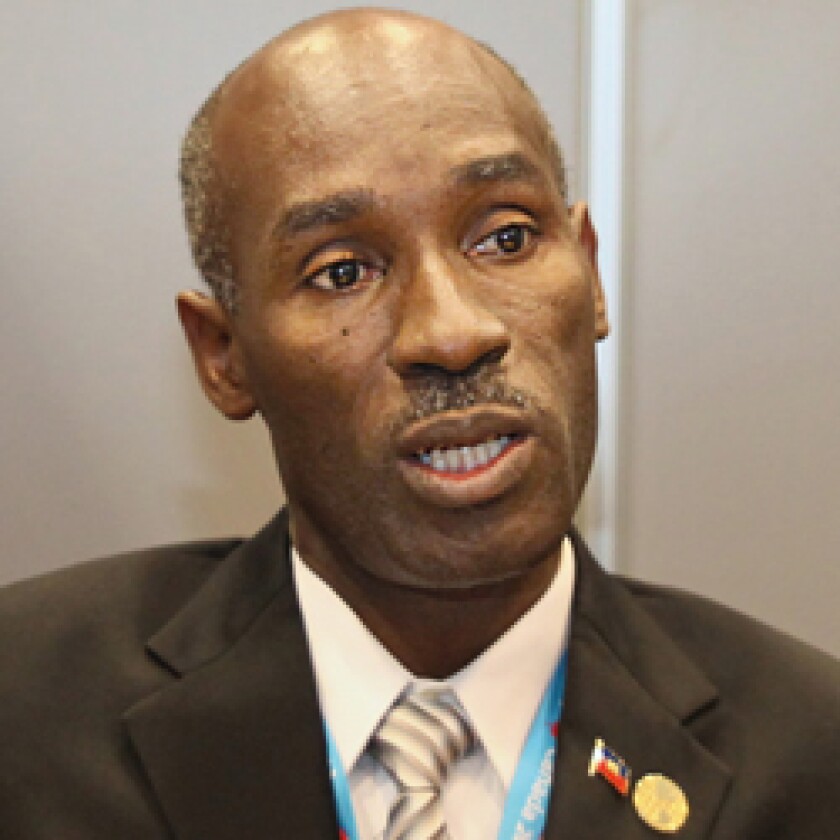Rising food and fuel prices are potentially more destabilizing than political conflict in Haiti, the Caribbean state’s finance minister Ronald Baudin said yesterday.
One year after the earthquake that killed 300,000 people in Haiti, the government is faced with a strike, due to start from Monday, in protest at its unpopular decision to cut fuel subsidies by up to 40%. Two local trade unions called for the action last week.
“If prices continue to climb in the international market, and we do not find a way to limit the impact, I am afraid there may be trouble,” Baudin told Emerging Markets. “In 2008, in a similar situation, unrest led to the fall of the government.”
The price of oil has climbed above $100/ barrel, and is set to remain at very high levels as political violence spreads through the Middle East.
High fuel prices have had a huge impact on Haiti’s public finances. Annual tax revenues amount to less than $1 billion, said Baudin, who has called again for a rapid release of foreign development aid.
Baudin called for “relief measures to support the purchasing power of the population” from the international community – which, he said, has failed to release a large part of the aid pledged after the devastating earthquake.
Political stability in Haiti also depends on the outcome of the March 20 presidential election, when Michel Martelly and Mirlande Manigat disputed a second-round run off. Partial results have given Martelly a lead but official results are only due to be announced on March 31.
“There is nothing that could lead us to fear unrest in the run up to March 31,” Baudin said.
On the reconstruction front, Steven Puig, IDB vice president for the private sector and non-sovereign-guaranteed operations, said ongoing efforts, estimated to have an aggregate value of $14 billion, need better cooperation between official foreign aid and private sector development.
“There is some frustration when you look at the speed with which things are happening [in Haiti]”, Puig said. “On the other hand, I think it is natural to expect that things cannot change overnight.
“There is certainly frustration. But we are working hand in hand with sponsors and shareholders of these projects. It takes time, whether or not you have had an earthquake.”
